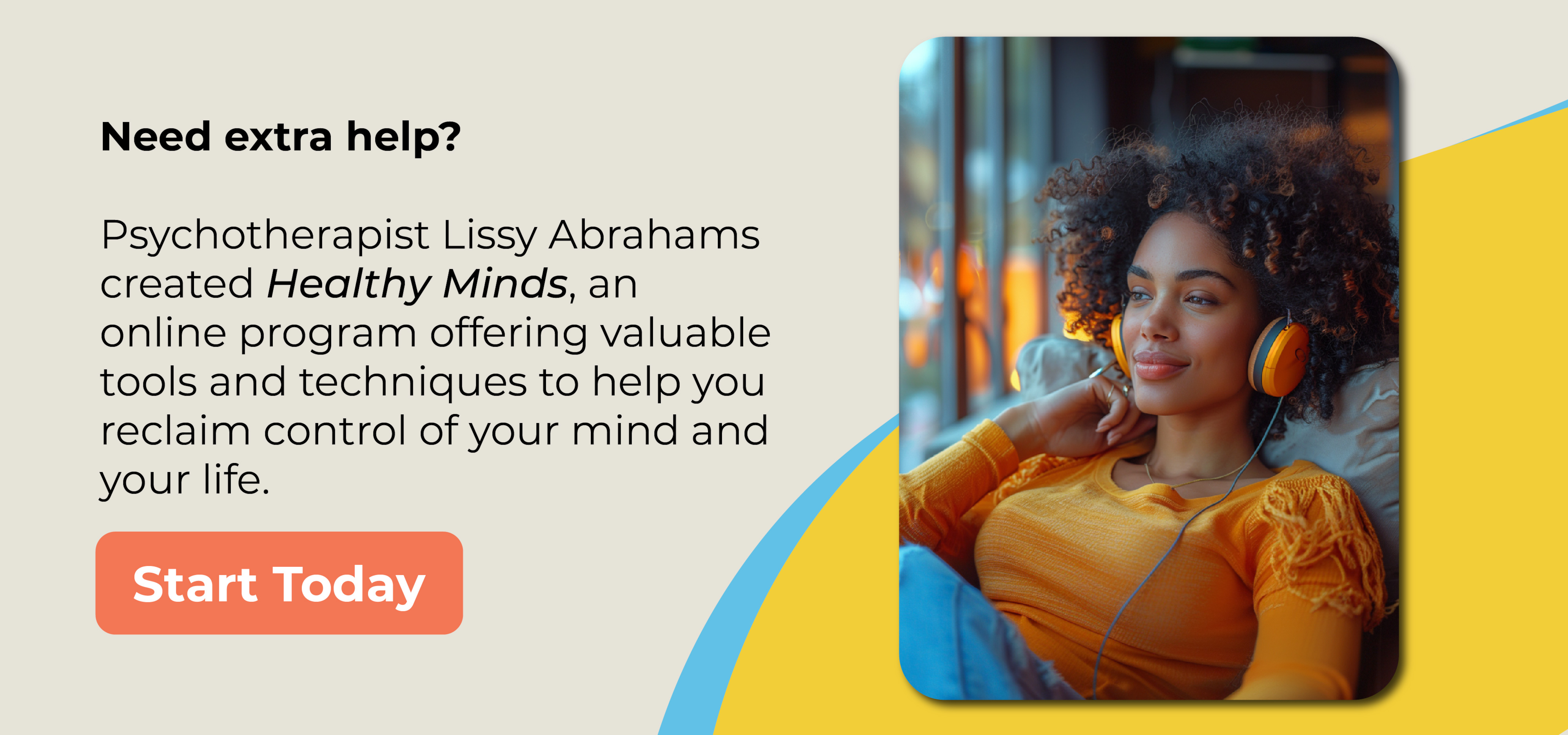Anxiety Recovery: Navigating the Path to Wellness

Following Martha's separation from her husband, she experienced restless nights and overwhelming panic. She knew she'd need some support to reduce her fear and ward off deep depression. What truly helped her was not quick fixes, but an empathetic approach to anxiety recovery.
Recovering from anxiety is a gradual process. It's about developing self-awareness, understanding the reasons for anxiety, and learning strategies, and this article will examine these vital areas. It's a personal journey beyond just coping mechanisms. For anyone dealing with anxiety and its impact on mental health, this guide will light the way.
Recovery doesn't always mean curing anxiety completely but managing it effectively. It sometimes means functioning despite one's anxiety, not eliminating natural or sometimes beneficial feelings of caution. In this article, we will explore the benefits, challenges, and practical steps toward managing anxiety so you can live a more fulfilling life.
Establishing a Foundation for Anxiety Recovery

Understanding the impact anxiety has on your life (including relationships with family members, colleagues, and friends) is vital. This guide will address the benefits, challenges, and practical steps of overcoming anxiety.
Historically, anxiety has been perceived as a negative force to be eradicated. But today, we've come to realize it's actually a crucial alarm system, tipping us off to potential threats. This involves understanding triggers, recognizing symptoms, employing coping strategies, and seeking help when necessary.
Embracing Anxiety Recovery: Inspiring Stories of Real-Life Success

Emma's Empowerment Journey
Diagnosed with an anxiety disorder, Emma faced challenges in daily situations and her career. Working with her therapist, she developed the ability to challenge her thought patterns and regained her confidence.
Paul's Breakthrough
Paul's anxiety stifled his thinking and creativity. He often felt stress and severe panic when he needed to show a person his graphic designs at work. Exposure therapy reduced his worry and fear.
These stories highlight the transformative power of committing to anxiety recovery, enabling greater control in personal lives and enhanced productivity in professional spaces.
Steps for Overcoming Anxiety
Develop Self-Awareness

Keeping a journal may help you identify your anxiety patterns by answering these questions:
-
Where and when is your anxiety worse?
-
Do you avoid situations (like public speaking or being with friends)?
-
Does anxiety interfere with daily life?
-
How do you talk to yourself?
-
What is happening in your body, brain, and breathing with panic attacks or anxiety symptoms?
-
Do you have depression or an anxiety disorder?
-
What are your anxious worries or fears? What makes them worse?
-
What helps your symptoms feel less severe or allow you to relax? How does this alter your brain and body?
Behavioral Strategies
People living with anxiety use strategies to challenge unhelpful thought patterns.
Seek Support

Reach out to:
-
friends
-
family
-
online community
-
psychological support
-
in the case of persistent anxiety, medication (like antidepressants) may be prescribed to support your treatment
Mindfulness and Relaxation
Learn and practice relaxation techniques, for example:
-
deep breathing exercises
-
mindfulness
-
progressive muscle relaxation (PMR)
-
meditation
Healthy Habits
Maintain a balanced diet, regular exercise, and adequate sleep to influence your overall wellbeing.
Confronting Anxiety: Strategies for Effective Management and Recovery
Dealing with anxiety issues is pretty common, and those intense panic attacks can really disrupt your everyday life. But there's hope. Therapy offers treatment in a safe space to deal with anxiety or an anxiety disorder.
To overcome anxiety or an anxiety disorder recovery services like therapy incorporating exercise into one's routine has been shown to naturally alleviate symptoms. Writing, for example, can be a therapeutic tool, enabling individuals to express and understand their experiences with panic and anxiety. With the right support and techniques, managing and overcoming anxiety becomes a feasible goal.
In Depth Exploration: Insights into Recovering from Anxiety
Explore the resources below to gain insights and deepen your understanding of anxiety and develop strategies to treat anxiety.
-
The Mind Strength Method: Four Steps to Curb Anxiety, Conquer Worry and Build Resilience by Jodie Lowinger
-
Antony, M. M., Craske, M. G., & Barlow, D. H. (2006). Mastery of Your Anxiety and Worry (MAW): Therapist Guide (Treatments That Work). Oxford University Press.
-
Anxiety and Depression Association of America (ADAA). An online resource with information, articles, blogs, and webinars.
Frequently Asked Questions

How long does it take to recover from anxiety?
The time it takes to recover from anxiety varies from person to person. It depends on factors such as the severity of the anxiety, individual circumstances, and the treatment plan. With application of therapy strategies, lifestyle changes and resilience improvements can be seen within months to a year.
What is the 333 rule for managing anxiety?
The 333 rule is a grounding technique that helps manage feelings of anxiety. When you experience anxiety take a moment to look around and name three things you can see. Then focus on three sounds you can hear and move three parts of your body. This method helps redirect your attention and reduces feelings of anxiety.
What can help in recovering from anxiety?
There are ways to overcome anxiety, such as psychotherapy, cognitive behavioral therapy — ensuring they are a qualified mental health professional.
Other examples include meditation, breathing exercises, mindfulness to reduce tension, worries, and over thinking. To reduce anxiety symptoms and improve mental health, take care to have: daily activity (running is good), a healthy diet, support groups, and seeking support from others.
How can one cope with anxiety?
Rather than focusing on getting rid of anxiety, finding effective treatments and ways to reduce physical symptoms from worrying and negative thoughts is useful. Psychological therapy sessions, prescribed medication (if needed), self-care practices, mindfulness techniques and lifestyle changes can help. It's very normal these days to seek assistance to help you stop worrying.
Conclusion: Pathways to Recovering from Anxiety
Panic attacks, anxiety symptoms, and fear can occur when you least expect it. Everyone's path to recovery is different, shaped by their own experiences and situations.
In this article we've explored the concept of anxiety, offered steps to reduce anxious symptoms, shared real-life stories, answered questions, and provided resources for further reading. This guide is a tool for navigating your journey to improve your well-being.
Begin Your Path to Overcoming Anxiety
Feeling ready to tackle anxiety head-on? Dive into Healthy Minds, Lissy Abrahams' online program designed to equip you with the tools you need to manage anxiety and boost your mental well-being.
Check out Healthy Minds and other programs crafted from Lissy's extensive expertise as a psychotherapist and relationship expert.
Take control of your journey and learn at your own pace, confronting fears and embracing growth along the way. Start your path to anxiety recovery today. Your journey begins here!



